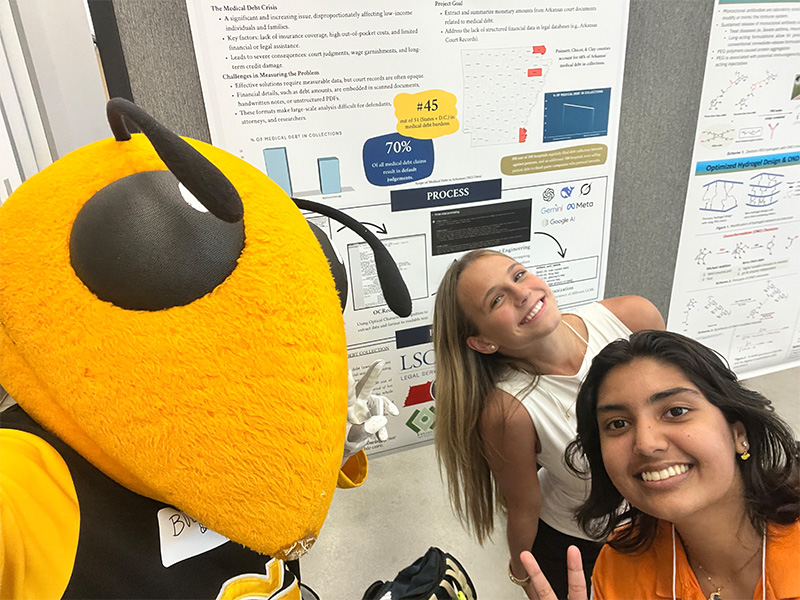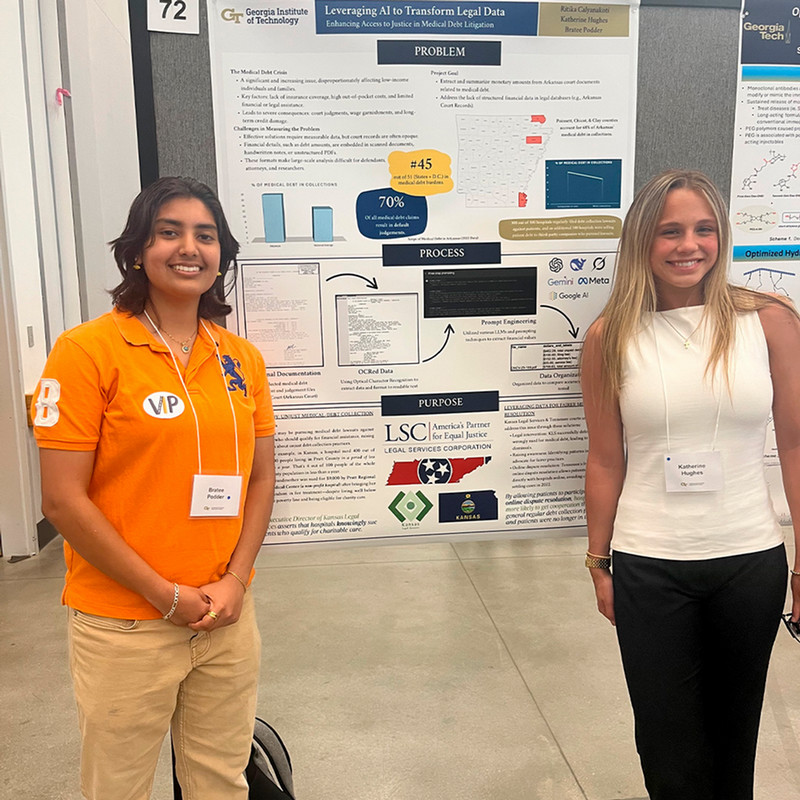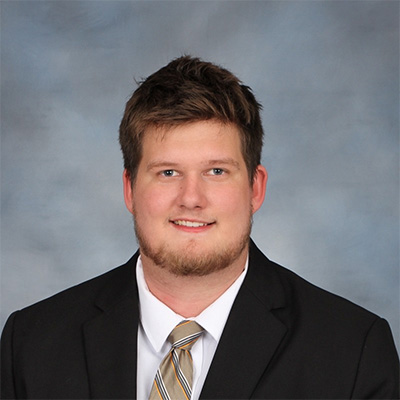
Eight students. Four Georgia Tech colleges. One semester-long project with an uncertain outcome. Led by Scheller College of Business Law and Ethics Professor Charlotte Alexander students from across the Institute came together in the Law, Data, and Design Lab to complete a Vertically Integrated Project during the 2025 Spring semester. One team project addressed a growing crisis affecting some of the nation’s most vulnerable: medical debt litigation.
Armed with a desire to do good in the world, and growing expertise in their current studies at the colleges of Business, Computing, Engineering, and Industrial and Systems Engineering, the students discovered how powerful interdisciplinary collaboration and cutting-edge technology can be in creating social change.
The Law, Data, and Design Lab is the brainchild of Alexander, who from a young age felt a call to serve her community. “I went to law school because I saw law as a tool to look beyond myself and contribute to the greater good,” said Alexander. “I see this as part of my purpose. Being at a public university, I take seriously the responsibility to ensure my research is outward facing, that it reaches beyond academia and helps make the world a better place.”
A Real-World Challenge With Real-World Impact
Medical debt is a leading cause of civil litigation against low-income Americans. Often, patients are sued by third-party debt collectors after hospitals sell off unpaid bills. These lawsuits often result in default judgments against defendants who lack legal representation or are still recovering from illness.
The civil legal system in the United States is fragmented. Many case records are recorded differently across thousands of state and county courts, making it difficult to analyze trends or understand the broader landscape of civil litigation. The Legal Services Corporation, the largest funder of civil legal aid for low-income Americans, launched the privately funded Civil Court Data Initiative (CCDI) through its Office of Data Governance and Analysis to build a comprehensive, standardized database of civil legal cases.
Alexander’s Law, Data, and Design Lab partnered with CCDI to develop a method to extract meaningful data from thousands of image-based court filings in Arkansas. The filings were inconsistent, unstructured, and riddled with confusing analysis-resistant markings like stamps and handwritten notes.
“With the rapid development of AI technology and Large Language Models (LLMs), the ability to turn this unstructured data into structured, usable information has the potential to be improved,” said Logan Pratico, a data engineer at LSC. “The students were essential in helping us determine whether the technology has improved significantly enough that such information can be gleaned effectively.”
The end goal was clear, but the results were never certain. To launch the project, Alexander began the semester by grounding her students in the broader context of their work. After an introductory Zoom meeting with LSC, students began researching both the issue of medical debt and the mission and work of LSC. The Zoom meeting and research helped them understand the real-world stakes of their project and how their data analysis efforts could contribute to addressing systemic legal challenges, even if indirectly.
“This was a hard project,” said Alexander. “This was not a canned classroom exercise. I didn’t know if the students were going to be able to figure something out.”





